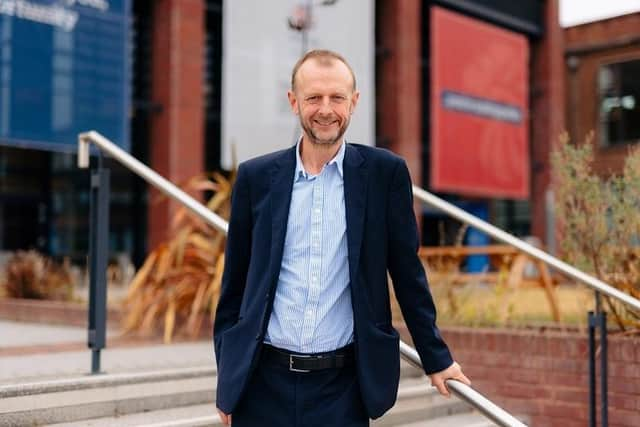Hull holds the key to answering some of the big questions around climate change - Dave Petley
With 20 named storms to date, and one of the wettest winters on record, the impact has been widespread and has been well-documented in the media.
Residents in Ulrome on the Yorkshire coast have shared their angst as recent storms have left their homes closer to the cliff edge, while other residents across the county have lived with the uncertainty of flood alerts and warnings. Indeed, many have seen floodwaters invade their homes; while farmers have watched and waited as their fields remain submerged, with real concerns about the implications for food production come the warmer months.
Advertisement
Hide AdAdvertisement
Hide AdWe can hope for a change in the weather as spring approaches, but there is no doubt that these challenges will persist in the years to come. To respond, our approach cannot be based on absolute prevention of, for example, flooding, but instead we will have to focus on building resilience to enable us to live with these threats. Pragmatically, we have to live with the hazards, rather than believing we can engineer our way around them.


This time last year, I confirmed that one of my most pressing priorities for the University of Hull was to continue to advance research and innovation to tackle climate change, whilst embedding sustainability in all that we do. As we continue to build on the outcomes of COP28, it becomes even clearer to me that in our fight for climate justice, collaboration is essential, between universities, businesses, the third sector, and Government partners, at local and national level. It is paramount that we work together so that we can manage the impacts of global warming, with a focus on mitigating its devastating effects on the most vulnerable, and bring sustainability to the fore of our ambitions. We must all play our part: taking small steps that in total will make a huge difference.
In my academic role, as a geographer and earth scientist, my major research focus is on the study and management of landslides.
As I record the multiple devastating landslides that have affected global communities in recent months (a key part of my own research), I’m reminded of the need to address the disproportionate impacts of climate change on low-income, socially-deprived people around the world.
Advertisement
Hide AdAdvertisement
Hide AdIn fact, it was the University of Hull’s Strategy 2030, which commits us to creating a fairer, brighter, carbon neutral future, that was one of the key attractions that brought me to Hull as Vice-Chancellor 18 months ago. The strategy is a call to action to help the people and places most impacted by, but generally least responsible for, the problems that are resulting from climate change.
Fortunately, I have been heartened by the recognition that emerged from COP28 of the urgent need for strengthened adaptation action at scale to reduce vulnerabilities and enhance resilience, recognising that climate change is already impacting lives and livelihoods across the world. At the University of Hull we are playing our part in this – and I’m proud that as an institution we’re addressing the issues of climate change through wide-ranging research, from ocean acidification through to the impacts of climate change on human health.
COP28 also recognised the need to prioritise adaptation in climate-sensitive areas, like rivers and lakes. Here again, it is good to see recognition of such an important resource.
In Hull the amazing ‘Living With Water’ partnership is focused on improving our flood resilience and reducing the impact of water hazards at the level of local communities, for example investing in sustainable draining to manage flood hazard.
Advertisement
Hide AdAdvertisement
Hide AdThis work is underpinned by our research on both our global-scale flood modelling and local scale ‘digital twins’ for Hull and the East Riding of Yorkshire, which allow accurate simulation of the flow of water in cities.
We’ve even developed a Green-Blue living laboratory on campus to better understand how we manage our own water and to build and monitor effective and sustainable drainage systems.
Perhaps the most controversial debate of COP28 was around the future of fossil fuels. The parties agreed to transition away from these polluting sources of energy to progressively change the energy sector. The ambition for just energy transitions includes a tripling of renewable energy capacity and doubling energy efficiency gains by 2030.
In our region, offshore wind energy is a fundamental part of this change. It is critical that we develop a better understanding of how to advance offshore wind capabilities and to minimise environmental impacts.
Professor Dave Petley is the vice-chancellor of the University of Hull.
Comment Guidelines
National World encourages reader discussion on our stories. User feedback, insights and back-and-forth exchanges add a rich layer of context to reporting. Please review our Community Guidelines before commenting.